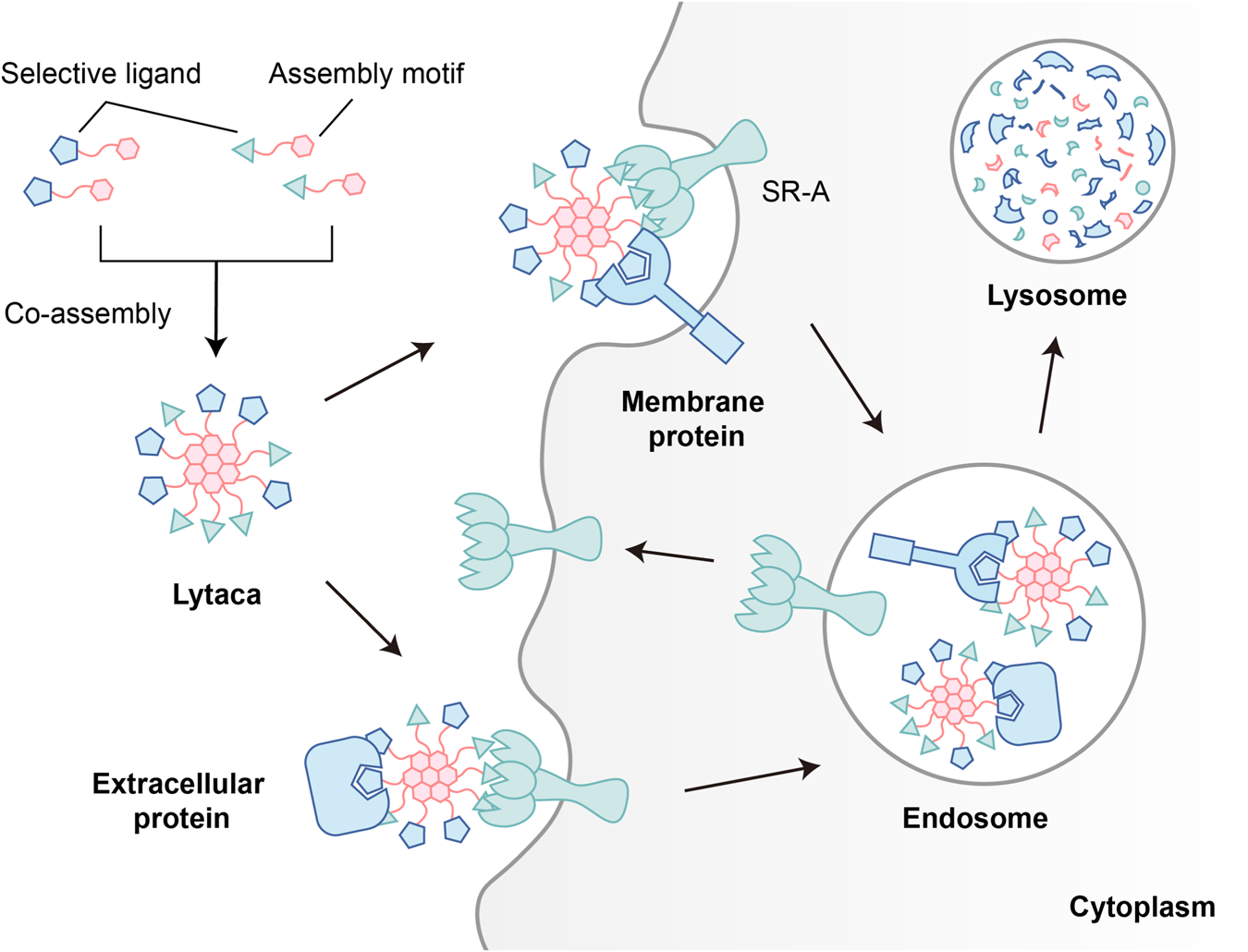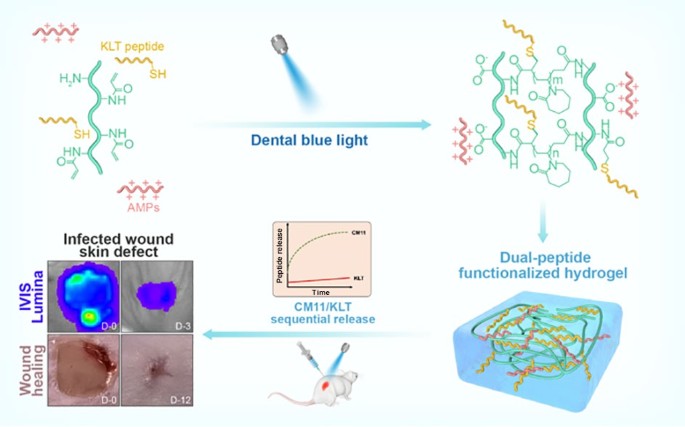Guiyan Wang, Ning Yuan, Jun Zhang, Man Qin, Suwei Dong* & Yuguang Wang*



The effective management of bacterial infections that are resistant to multiple drugs remains a substantial clinical challenge. The eradication of drug-resistant bacteria and subsequent promotion of angiogenesis are imperative for the regeneration of the infected wounds. Here, a novel and facile peptide containing injectable hydrogel with sustained antibacterial and angiogenic capabilities is developed. The antibacterial peptide that consists of 11 residues (CM11, WKLFKKILKVL) is loaded onto acrylate-modified gelatin through charge interactions. A vascular endothelial growth factor mimetic peptide KLT (KLTWQELYQLKYKGI) with a GCG (Gly-Cys-Gly) modification at the N-terminal is covalently coupled through a visible light-induced thiol-ene reaction. In this reaction, the acrylate gelatin undergoes cross-linkage within seconds. Based on the physical/chemical double crosslinking strategy, the bioactive peptides achieve sustained and sequential release. The results show that the hydrogel significantly inhibits methicillin-resistant Staphylococcus aureus (MRSA) growth through the rapid release of CM11 peptides at early stage; it forms obvious growth inhibition zones against pathogenic bacterial strains. Moreover, cell counting kit-8 assay and scratch test confirm that the CM11/KLT-functionalized hydrogels promote cell proliferation and migration through the later release of KLT peptides. In a mouse skin wound infected with self-luminous MRSA, the CM11/KLT-functionalized hydrogels enhance wound healing, with rapidly bacterial infection reduction, lower expression of inflammatory factors, and neovascularization promotion. These results suggest that the rationally designed, sustained and sequential release CM11/KLT-functionalized hydrogels have huge potential in promoting the healing of multi-drug resistant bacterial infected wounds.
Download